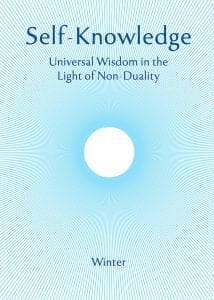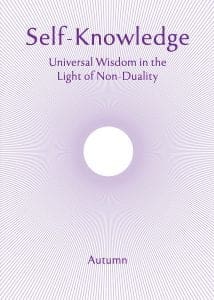Educating the Mind
Men’s natures are alike. It is their habits which carry them far apart. Confucius The Chinese sage, Mencius, was once asked by a disciple how it was that while human nature is common to all men, some are great and some small. Mencius replied that the important point was habit—the habit of following either our…
Read MoreNicholas of Cusa as Scientist
The conclusion of an article on ‘Cusanus’ that was begun in the Summer 2024 issue of this journal Nicholas of Cusa (1401-1464), known as Cusanus, saw nature as a symbol of the Divinity. But what he asked of a symbol was not so much force and liveliness as clarity and certitude. ‘Nature’, he wrote, ‘is…
Read MoreDirect Experience of Reality
What is the chief concern of the non-dual philosophy? It is to awaken us to a life-experience that brings lasting fulfilment. This greatest gain is not the result of any worldly success or achievement. Rather, it is uncovered in the depth of our own being through developing a particular way of life and of thought.…
Read MoreThe Absolute as the Lord of Maya
From the Shankara Source Book, Volume Two, Shankara on the Creation The usages to which Shankara puts the term ‘Maya’ may be analysed briefly as follows. It is found in certain non-philosophical contexts in the non-technical sense of duplicity or dishonest dealings in the world, but these passages have no relevance to our present enquiry.…
Read MoreThe Nature of Truth
Why ask: ‘What is Truth?’ The question springs from one of the most fundamental urges in the human mind. This instinct to learn the truth or reality of things, is the spur driving scientists to make their discoveries. It is present in every human heart, and if this urge is stifled, we are reduced to…
Read MoreThe Temple Cave of One’s Own Self
If we consult a dictionary for words that begin with ‘self-’, we will find among the eighty or so entries two main types of word: those which point to certain qualities, and a few abstract nouns suggestive of something deeper. Thus we are reminded of qualities which many would feel are assets, such as self-control,…
Read MoreSeeing Beyond Differences
The practice of meditation involves both stilling the mind and filling the mind. The two overlap and have the same aim, which is to be free of what seems to separate us from what is most real and fulfilling in ourselves and in all. We find that stilling the mind relieves us of much tension…
Read MoreDoes Experience Affect Consciousness?
In the Thousand Teachings of Shankara we find a dialogue between a student who has found a difficulty in the non-dual philosophy, and a teacher to whom the student turns for guidance.* The problem is this: it is taught that the true Self is pure consciousness, which is not affected by any limitations and change;…
Read MoreInner Heroes
There is hardly a moment which is free from humankind’s extreme expression of conflict: war. Why this inveterate tendency to fight? Some conceive of a mythological or historical ‘fall’ as the point when the human mind chose the path of desire and discontent over the harmony of paradise. According to another view, a condition of…
Read MoreThe Mundaka Upanishad
satyam eva jayate (truth alone triumphs) [3:6:1] The Mundaka Upanishad is an exposition of the higher knowledge that leads to omniscience. This is not the knowledge of empirical facts, or specialised knowledge of particular subjects. It is the knowledge we value because it satisfies our urge to know the essence of things, in contrast to…
Read More


